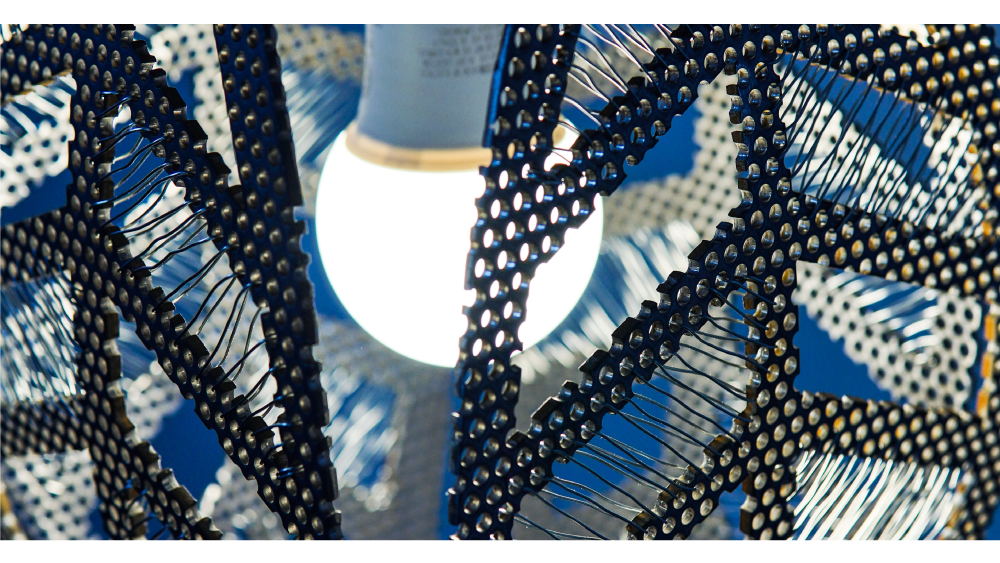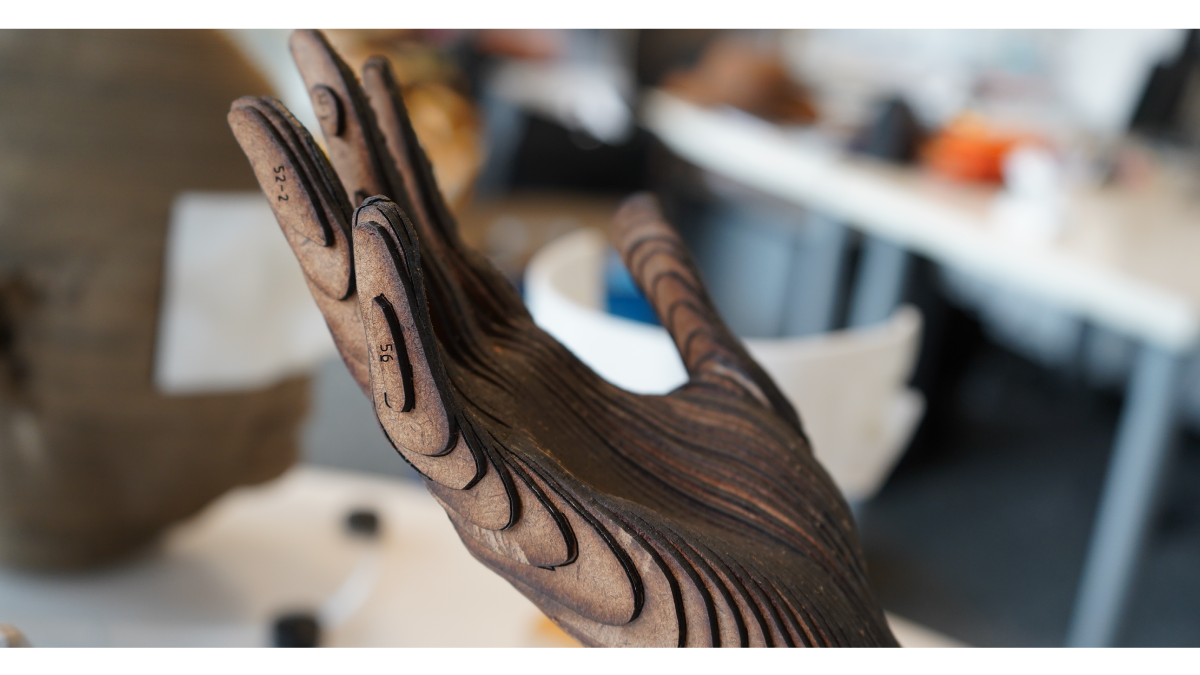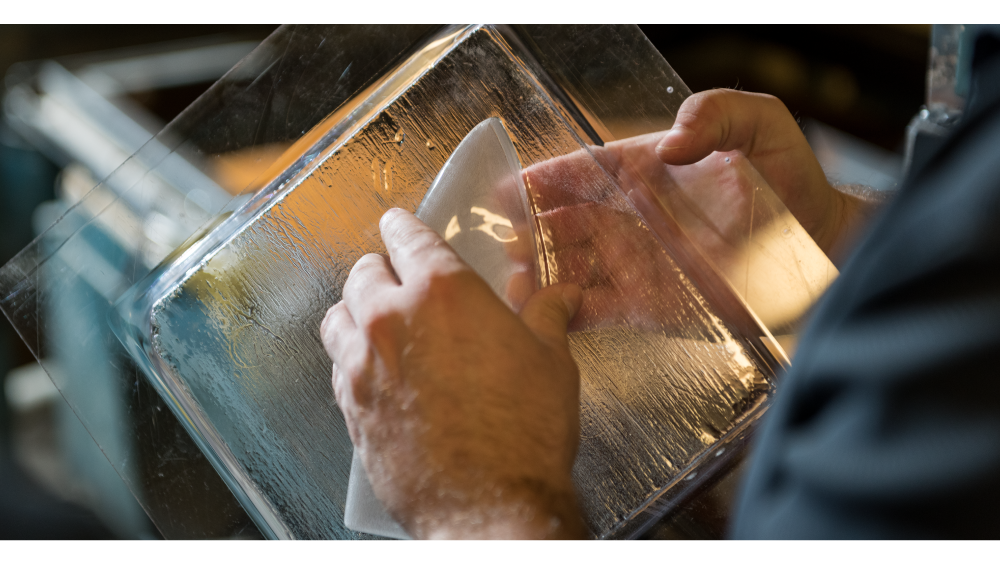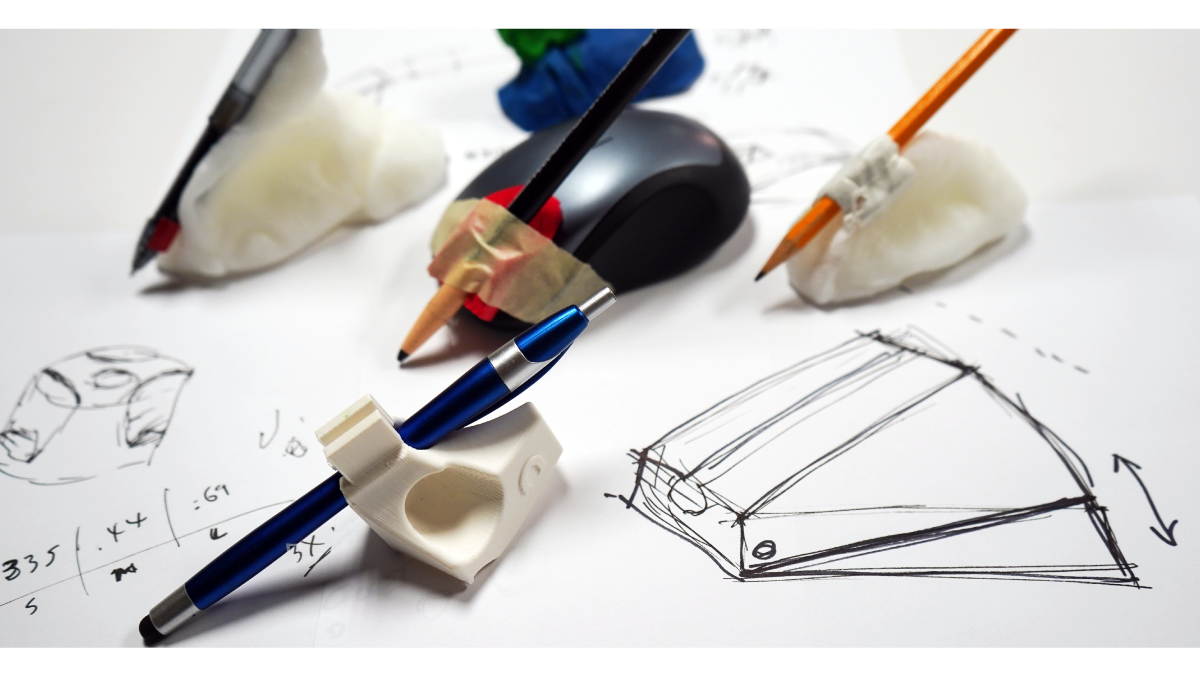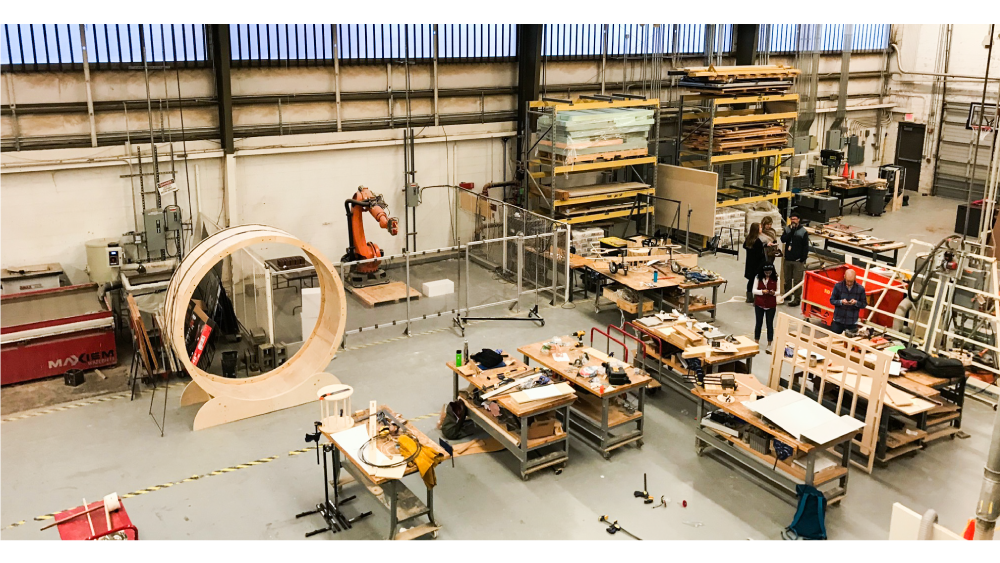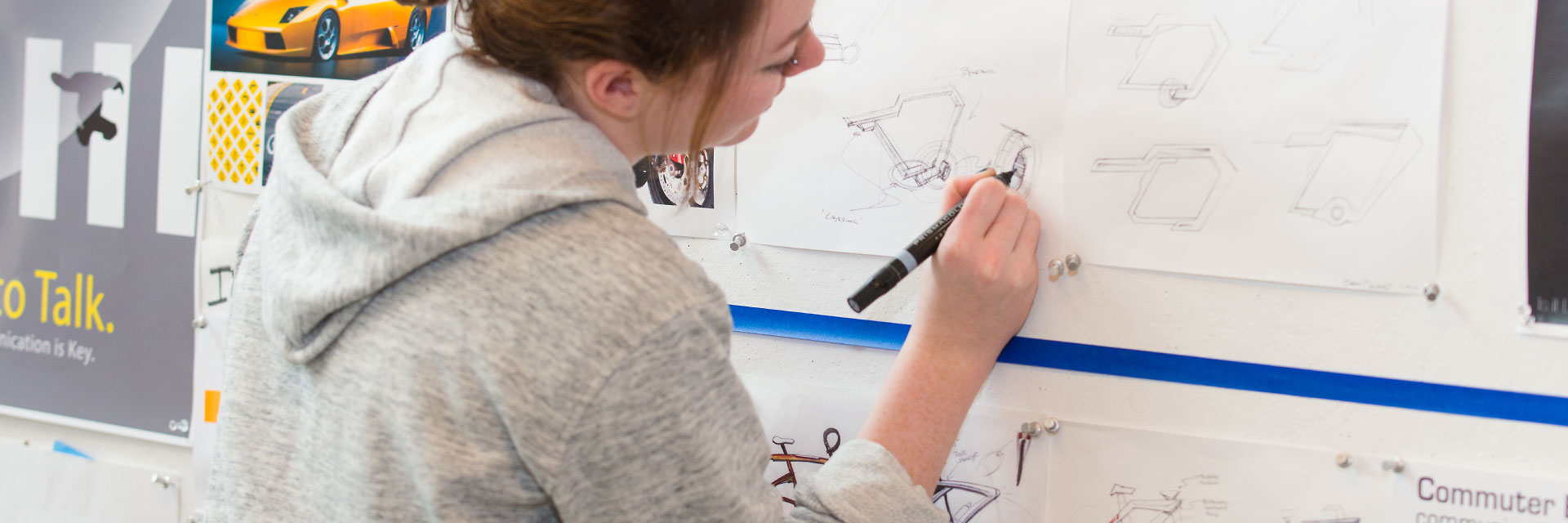
What to Expect in a Studio Class
At Georgia Tech, there's a difference between studio classes and other classes that consist of lectures and exams. You can cram for an exam, but studio classes are based on projects that require continual development, focus, and review, and involve an onslaught of real-world problems.
Studio classes are the foundation of the industrial design curriculum. Studios are available 24 hours a day, as are the workshop and the adjacent Interactive Product Design Laboratory. Our studios are equipped with sufficient power sources, technology, and reconfigurable furniture to allow for long, productive hours of collaboration and rapid prototyping.
A signature feature of our studio classes is an interdisciplinary culture: Our industrial design program is outward looking, developing critical ties to other programs on campus. We invite other groups at Georgia Tech into our studios to participate in the design process. That's why industry values our program so much: Most professional-level work is executed in a team environment, where problem-solving depends on collaboration.
